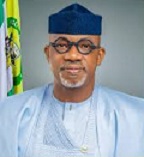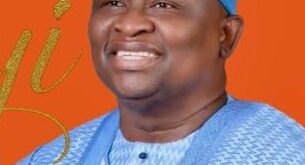ABUJA, FCT, NIGERIA – Recent developments have brought to light the real reason behind Ajuri Ngelale’s resignation from his role as Special Adviser to the President on Media and Publicity.
Initially, Ngelale, who also held the role of Special Presidential Envoy on Climate Action, announced on September 7, 2024, that he was stepping down due to a family medical issue. He expressed a desire to return to national service in the future.
However, insider reports suggest that Ngelale’s departure was not triggered by a family emergency but rather by a severe internal power struggle, particularly with Bayo Onanuga, the Special Adviser on Information and Strategy.
Tensions reportedly escalated when Ngelale’s actions and communication strategies irked other senior officials within the presidency. His relationships with prominent figures like Hakeem Muri-Okunola, Principal Secretary; Victor Adeleke, Chief of State Protocol; and George Akume, Secretary to the Government of the Federation (SGF), had deteriorated.
Ngelale’s appointment as Special Presidential Envoy on Climate Action in May 2024, a position that included chairing the Presidential Steering Committee on Project Evergreen, only heightened the tensions.
His unilateral announcement of these roles without proper consultation with the SGF’s office reportedly frustrated many within the administration.
This lack of coordination contributed to growing dissatisfaction among the presidency’s leadership, with President Bola Tinubu himself receiving complaints about Ngelale’s actions.
Despite the prestige of his dual role as spokesperson and climate envoy, Ngelale faced criticism from environmental stakeholders, who viewed his dual appointments as a breach of established protocols.
This scrutiny, along with the internal power dynamics, reportedly played a significant role in the events leading to his resignation.
Ngelale’s position within the presidency became increasingly precarious due to a series of public relations blunders. Notably, he mistakenly announced that President Tinubu was the first African president to ring the closing bell at NASDAQ in September 2023.
He also prematurely declared that the UAE had lifted its visa ban on Nigeria, causing public embarrassment for the government. These missteps were amplified by criticism from insiders, with one source describing some of his statements as “childish.”
In addition to his public mistakes, Ngelale faced accusations of being a poor leader. Reports suggest that he rarely provided clear direction to his team and fostered internal divisions by favoring certain members.
His alleged one-man-show approach alienated key team members and contributed to the growing dissatisfaction with his leadership style.
Though initially favored by President Tinubu due to his well-received CNN interview in May 2023, Ngelale’s visibility and effectiveness began to wane. Questions arose about his absence from TV appearances, which had once been his major selling point. Despite his return to media duties, it became evident that Ngelale was losing ground in Aso Rock politics.
The appointment of Bayo Onanuga as Special Adviser on Information and Strategy in October 2023 added further complexity to the situation. Onanuga, a respected journalist and former Managing Director of the News Agency of Nigeria (NAN), was brought in to streamline communication from the presidency.
However, the overlapping roles of Onanuga and Ngelale led to confusion and contributed to the internal discord within the communications team.
The conflict between Ngelale and Onanuga escalated over time. Ngelale, with his background in broadcast journalism and experience as a senior adviser, viewed himself as Onanuga’s senior.
However, the lack of clarity in their roles and the ongoing power struggle left both men vying for influence in Tinubu’s administration. Their clashes resulted in a dysfunctional communication strategy for the presidency.
After months of growing tension, Ngelale’s resignation was confirmed. Insiders revealed that he had been given a choice between continuing as the presidential spokesman or retaining his climate envoy role. Although he opted to stay on as the spokesman, the conditions imposed—such as being placed under supervision—made his position untenable.
On September 7, 2024, Ngelale officially announced his decision to step down from his roles, citing the need to address pressing family health issues. He expressed his intention to return to public service in the future but requested privacy during his time away from government duties.
The power struggle between Ngelale and other key figures in the presidency, including Bayo Onanuga, has had lasting impacts on the communication team’s functionality. Ngelale’s resignation marks the end of a chapter fraught with internal discord and challenges within the Tinubu administration.
 Startrend International Magazine For Your Latest News And Entertainment Gists
Startrend International Magazine For Your Latest News And Entertainment Gists





